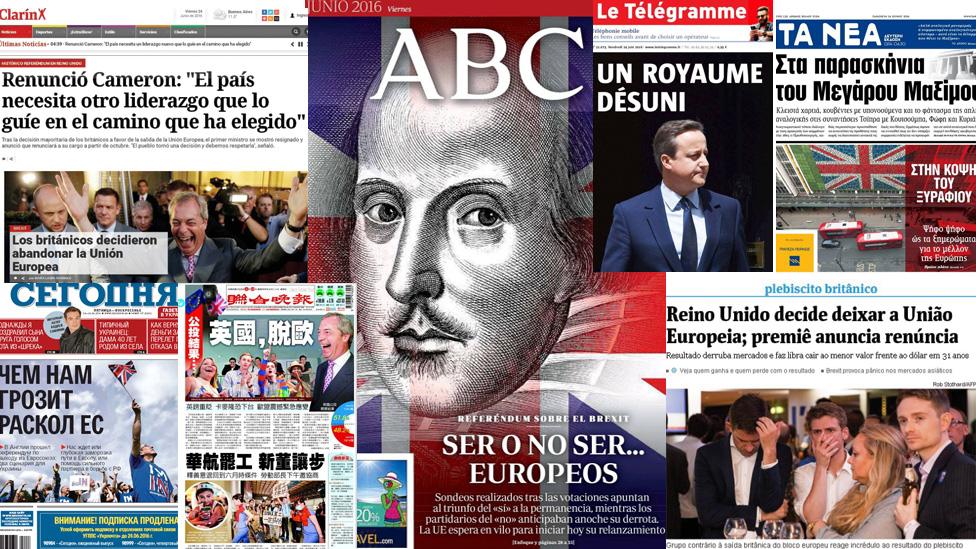Brexit's uncharted territory: Can the EU save itself?
- Published
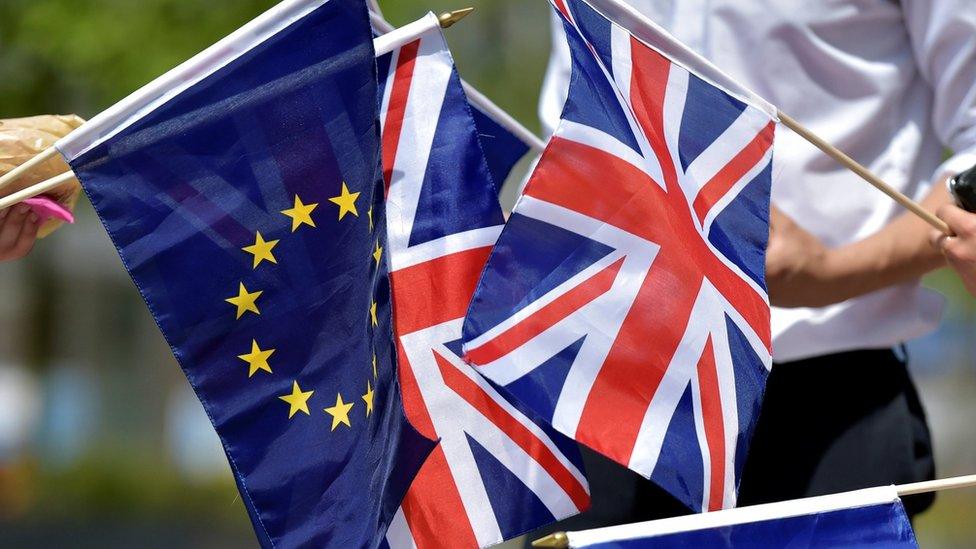
For many across Europe, the unthinkable has happened. But in truth it has been coming for a long time.
The European Union is now facing the biggest crisis in its history.
"It's an explosive shock," said French Prime Minister Manuel Valls, shortly after the victory of the Leave campaign was confirmed.
"At stake, purely and simply," Mr Valls added, "is the break-up of the union. We have to invent another Europe."
It is indeed not inconceivable that further fragmentation could follow. Political emotions are running high in many European countries. Old certainties are being abandoned.
And those who believe in the idea of European unity know that they have to respond quickly.
Their vision of Europe has taken a decisive step backwards, and the EU will be weaker without the UK.
Jean-Claude Juncker raised laughs and applause with his one-word answer to the BBC's Katya Adler.
The union is losing its second largest economy, its most influential diplomatic power and a country that has always sought to challenge the status quo.
"This is an unprecedented situation but we are united in our response," said the President of the European Commission, Jean-Claude Juncker.
"We will stand strong and uphold the EU's core values of promoting peace and the well-being of its peoples."
Beyond the sloganeering, the quality of leadership within the EU will be tested as never before. Muddling through may not be an option.
And that is why, now the British decision has been made, most European leaders want divorce to happen as quickly as possible. Some insist that David Cameron should invoke Article 50 - the mechanism through which separation will be negotiated - immediately.
Further integration?
Senior figures, from Donald Tusk to Angela Merkel, have called for calm. But any impression that the UK is dragging its feet will be met with an increasingly angry response.
As many EU politicians have emphasised: "Out is out."
There are those who argue that - with the UK no longer holding them back - a "coalition of the willing," led by France and Germany, could push forward with further integration to restore confidence in the European project.
Defence and security is one area where progress could be made relatively quickly.
But is that what citizens actually want?
Euroscepticism is not an exclusively British phenomenon. There have already been calls from populist politicians in France, Italy and the Netherlands for their own referendums on EU membership.
So it is hard to avoid the impression that political elites in Europe have for too long ignored the concerns of people who feel they have been buffeted by globalisation, and other forces beyond their control.
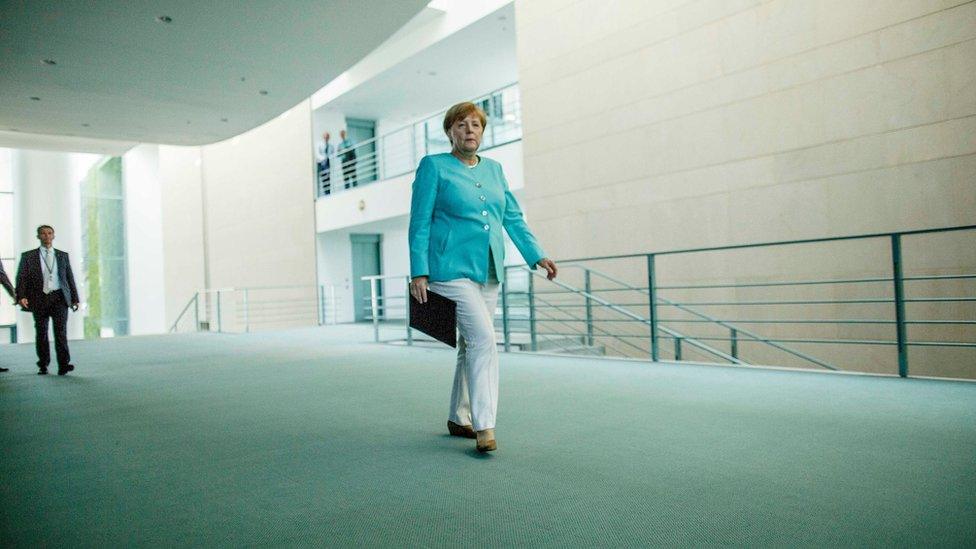
Angela Merkel expressed deep regret at the UK's decision
"Brussels must hear the voice of the people - that is the biggest lesson from this decision," Hungarian Prime Minister Viktor Orban said.
But there are also countless people across Europe whose lives have been plunged into uncertainty by the outcome of the UK vote - British expats and others.
And no-one should underestimate the political will to keep things together in the EU when crisis strikes. We have seen that time and again over the past few years.
This though is uncharted territory.
Practical answers
"The future of the European Union in my view genuinely hangs in the balance," the Oxford historian Timothy Garton Ash told me recently, at the height of the UK referendum campaign.
"Not that it's going to collapse tomorrow, but I think what is most important at the moment is that the European Union can deliver practical answers - to economic growth inside the eurozone; to managing the flow of refugees and migrants; and to addressing the fears of populations which lead them to vote for Eurosceptic and nationalist parties."
It is a formidable list. But if the EU is to survive and prosper without the UK, it will have to tackle the toughest issues head on.
Europe's political order has been overturned, with far-reaching consequences that no-one can accurately predict.
- Published19 June 2016
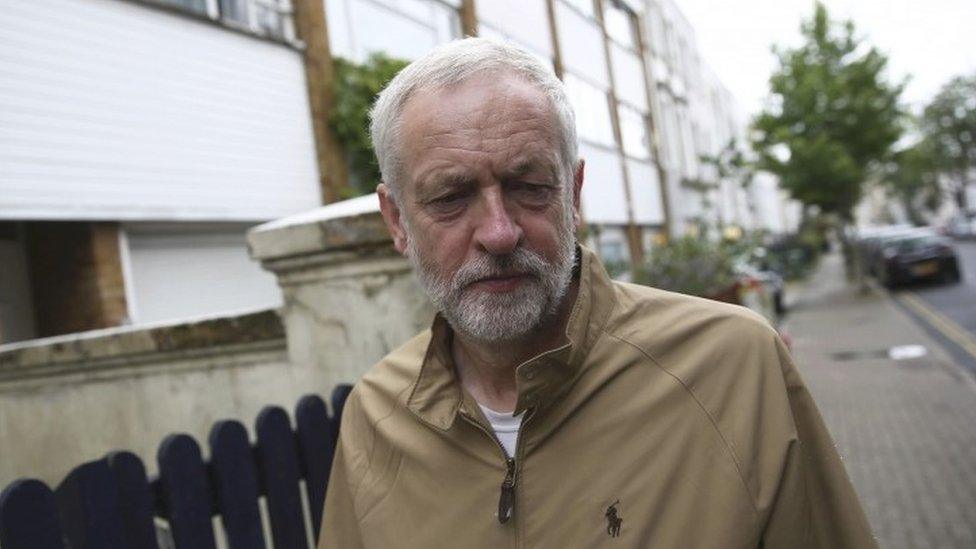
- Published24 June 2016
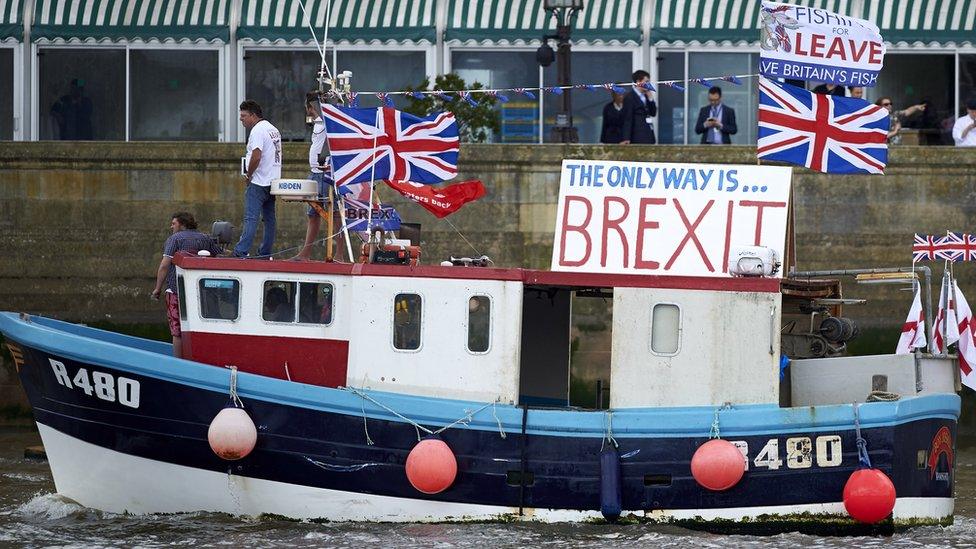
- Published24 June 2016
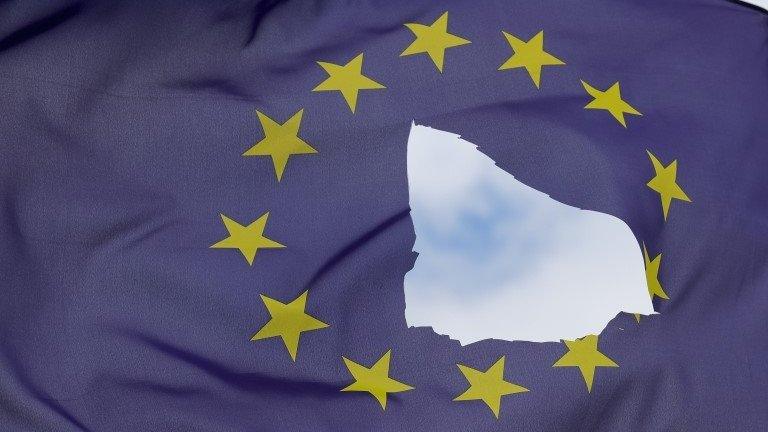
- Published24 June 2016
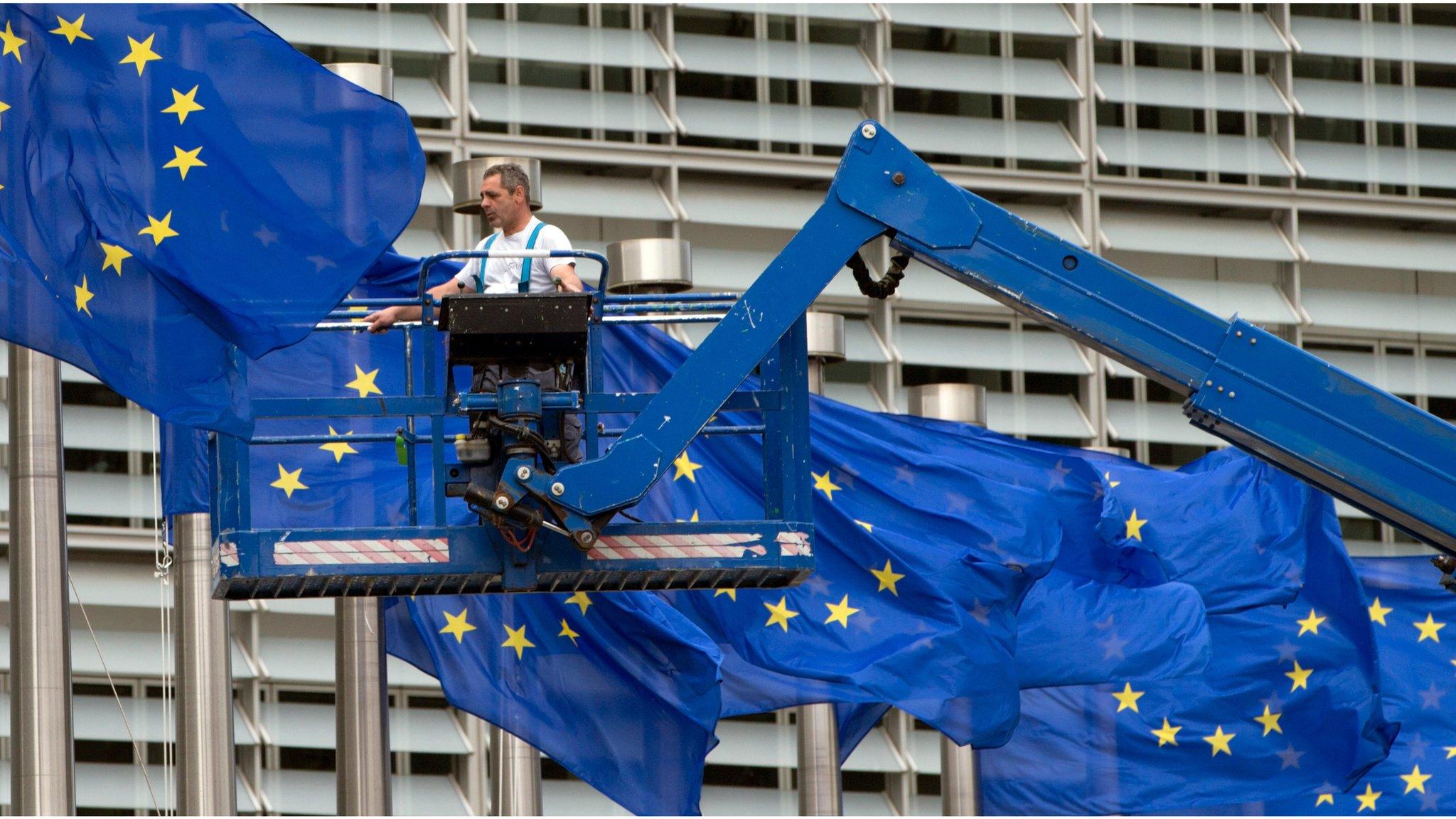
- Published24 June 2016
